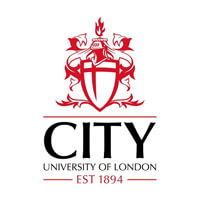fees waived
Optometry, MOptom (Hons)
City, University of London, United Kingdom
Subject ranking
UK / Guardian 2025 2nd
UK / CUG 2024 5th
UK / Guardian 2025 38th
Costs
food & rentS$25.1K / year
Entry requirements
Scholarships
Limited quantity
Information
Code
Intakes
Website (External)
Programmes
Information
Duration
2029
This optometry course equips students to make a meaningful impact on individuals with vision impairments and sight loss. At City, learners access cutting-edge clinics and labs, such as the City Sight Optometry Clinic, along with diverse placement and employment opportunities in London. The department, renowned for its experts in optometry, ophthalmology, and related disciplines, covers key topics including optics, eye biology, diseases, and therapeutic solutions like contact and ophthalmic lenses. In the final year, students develop clinical skills by examining patients of all ages with various ocular conditions.The curriculum builds from foundational sciences in the first year to advanced clinical training in subsequent years, including modules on optics, ophthalmic lenses, eye diseases, and visual perception. Assessment methods encompass coursework, written exams, clinical observations, and Objective Structured Clinical Examinations (OSCEs), culminating in a final-year project. The program is accredited by the General Optical Council and ranks first in London and second in the UK for Health Professions per the Guardian University Guide 2025.
From your very first day at City, you will build a foundation in the basic sciences that underpin optometry and start your clinical training. Lectures are supported by tutorials and laboratory-based work. Core modules include:
- Optics;
- Ophthalmic lenses and dispensing I
- Neural biology and general pathology
- Clinical skills I
- Visual optics and measurement techniques
- Clinical skills II
- Contact lenses
- Introduction to Eye Disease
- Binocular Vision
- Visual perception
- Ophthalmic lenses and Dispensing II
- Eye disease and therapeutics
- Clinical skills and professional practice
- Binocular vision, paediatrics and visual impairment
- Contact lenses II

